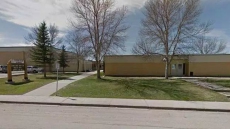HALIFAX — Extreme turbulence of the kind that injured seven people on a flight diverted to Newfoundland on Sunday appears on the rise, and airlines need improved technologies to detect it, according to a British researcher.
"We need to take it (air turbulence) seriously," said Paul Williams, an atmospheric scientist who has published papers arguing climate change is likely to increase the amount of high-altitude turbulence.
"I think there is a compelling case that there's an increase in turbulence and for investment in improving the detection and prediction of clear air turbulence," he said in a telephone interview on Tuesday from his office at the University of Reading.
In Sunday's incident, American Airlines flight 206 was diverted to St. John's, N.L. Passengers described a lasting bout of turbulence over the Atlantic that suddenly developed into dips so jarring that people were praying for their lives.
The incident comes just weeks after air turbulence struck an Air Canada Boeing 777 flying from China to Toronto, resulting in 21 injuries to passengers and the launch of a Transportation Safety Board probe.
Last year, 31 people were injured in air turbulence events, up sharply from the single incident in 2014 and the 15 cases in 2013, according to Transport Canada.
Williams co-published a 2013 paper in Nature Climate Change that used a climate change model to compare a pre-industrial climate with one that contained double the amount of carbon dioxide, and make predictions on long-term increases in air turbulence events over the North Atlantic.

The scientist says carbon dioxide is causing a long-term trend towards temperature changes high in the atmosphere, including at the cruising heights of airliners, and that is changing wind patterns.
"In scientific terms, there is a wind shear. Different layers of the atmosphere are meeting at different speeds and there is a kind of friction and that causes clear air turbulence to break out," said Williams.
The paper predicts the average strength of trans-Atlantic turbulence at cruising altitudes could increase by between 10 per cent and 40 per cent, and the amount of airspace likely to contain significant turbulence by between 40 per cent and 170 per cent.
"Our results suggest that climate change will lead to bumpier trans-Atlantic flights by the middle of this century," the paper said.
Williams says many airplanes have technology that can detect turbulence in clouds, but are less capable of detecting turbulence in clear, higher skies.
"We need to come up with better methods for predicting when and where clear air turbulence will strike ... We can by running computer models come up with areas where there will be turbulence, but they can be improved," he said.
A spokesman for American Airlines confirmed Sunday's injuries came after the airplane hit clear air turbulence.
Ross Feinstein, a spokesman for the airline, said the seatbelt sign was lit up and the airline is reviewing why the injuries occurred.

"There are a lot of aircraft that cross the Atlantic and Pacific each and every day and it's very uncommon this occurs. ... I can't stress enough that if you're in the seat, fasten your seatbelt especially when the seatbelt sign is on," he said.
Spokespeople for Air Canada and WestJet also both emphasized the importance of wearing seatbelts at all times.
Robert Palmer, the spokesman for WestJet, says "like any meteorological event, the ability to forecast turbulence accurately 100 per cent of the time is not an exact science."
However, Williams said new technologies are emerging that can give people extra time to get their seatbelts on.
He says a consortium in Europe is using a laser that beams from the front of the plane and detects patterns of turbulence, allowing time to change course.
Larry Vance, a consultant with Accident Investigation and Research Inc. in Ottawa, said that for the time being seatbelts are the key to injury prevention.
"With technology the way it is now, there's no way that pilots are equipped to avoid clear air turbulence. It can't be seen so you fly into it, and you just have to be ready for it," he said.





